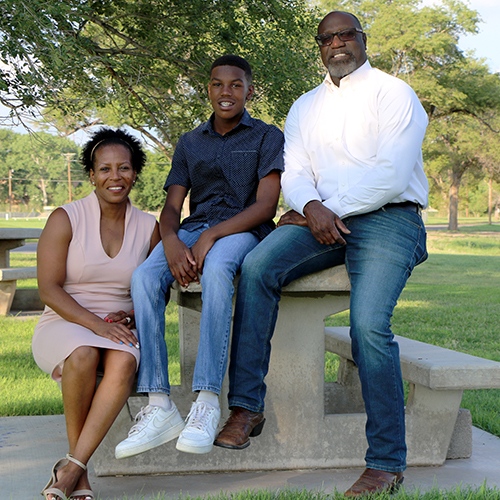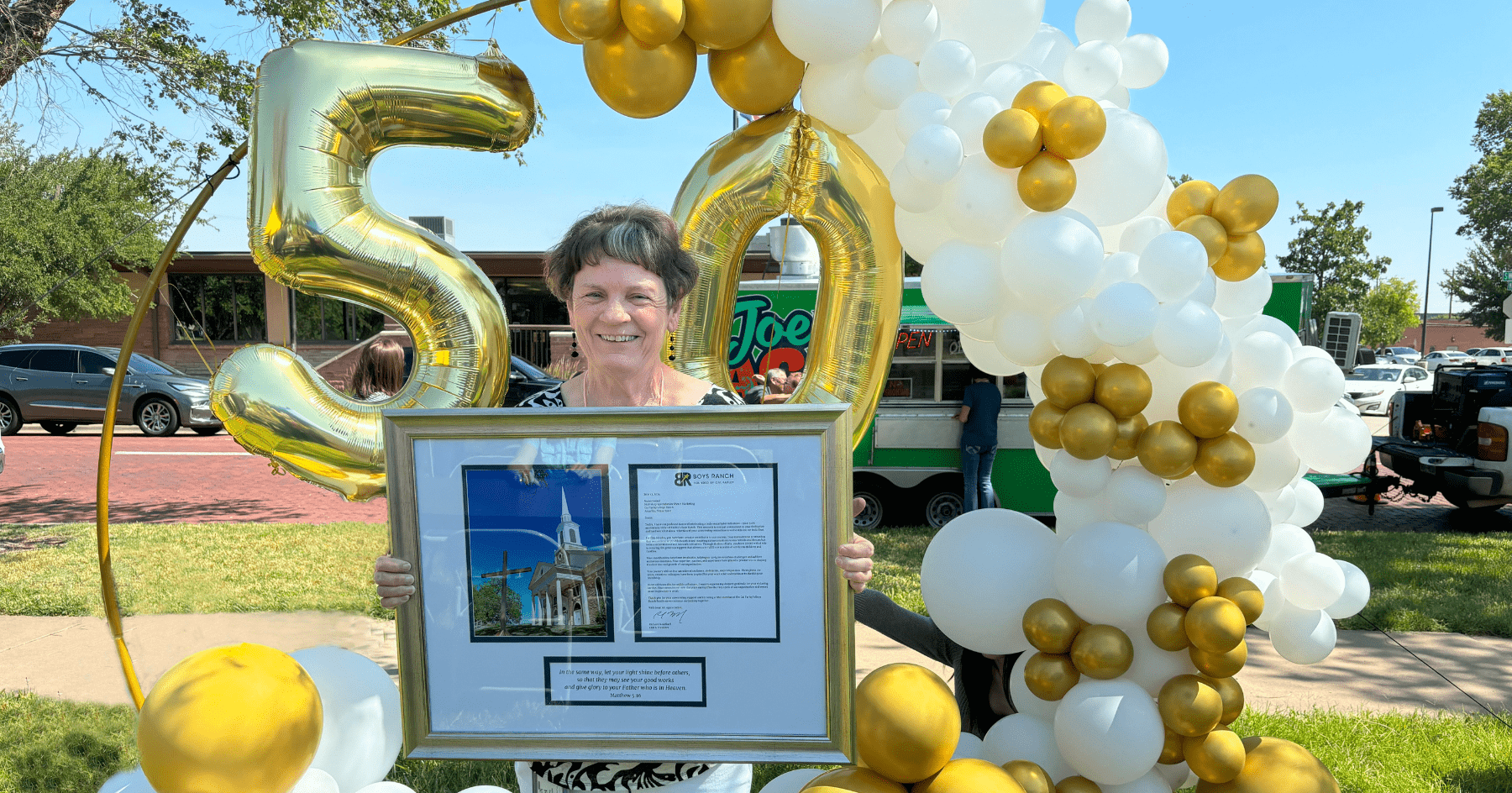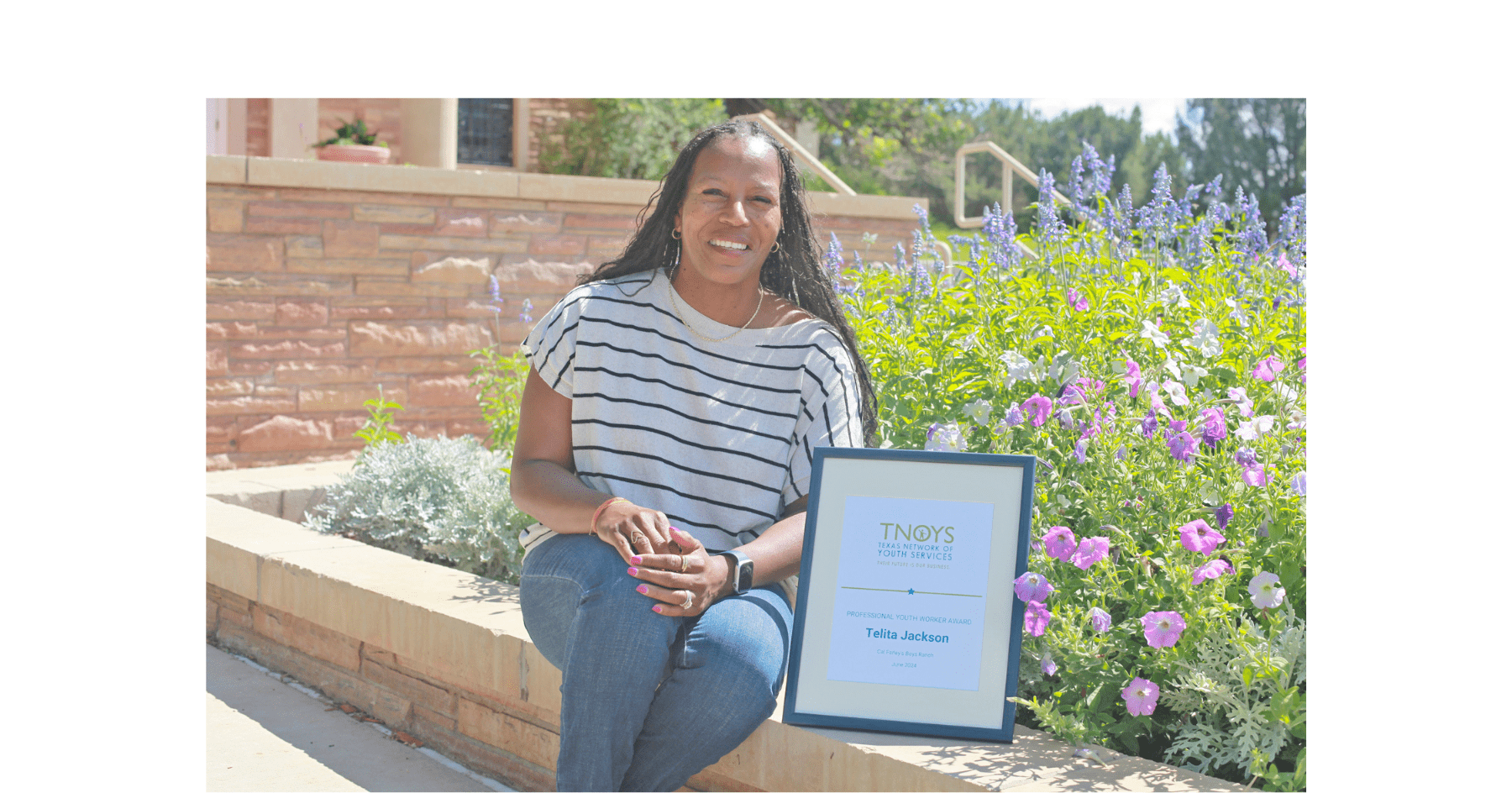A Happy Providence for Adrian Jackson
A job only intended to last one year has lasted 24 years and counting for Adrian Jackson and his wife, Telita, who began their journey at Boys Ranch in 1997.
“We actually got hired in December of 1996, but we were finishing up college, so that was in our last semester at Oklahoma Panhandle State University,” Jackson said. “We moved here and officially started January 6, 1997, as houseparents.”
It was happy providence that led them to Boys Ranch. They were driving in Amarillo, looking for apartments when they saw the Boys Ranch downtown office. Telita had an associate’s degree in sociology and a bachelor’s in psychology, so Adrian encouraged her to apply. While he was waiting in the lobby, Bonnie Nunley from Human Resources came and asked whether he wouldn’t like to be a houseparent.

Heart for Boys Ranch
It took a while, but eventually the Jacksons succumbed to Nunley’s blandishments, thinking that after a year, Adrian would find a job in the business world. But Boys Ranch and its residents starting pulling the Jacksons’ hearts.
“One of the things I liked about being a houseparent was the closeness with the kids,” Jackson said. “There wasn’t the Dippel Activity Center, so you had your kids all day long.”
The Jacksons played basketball with the children in their home, mowed lawns, weeded and played intramural softball against the other homes.
“That was the big thing – winning the softball intramural tournament,” Jackson said. “That’s kinda how it was – we were going through life together with our two kids we had at the time” and all the children in the house.
Six months after they started working as houseparents, a caseworker position came open. Telita took the job. Jackson stayed on as a single houseparent, still thinking that within a year – two at most – he would leave Boys Ranch for a business job.
Adrian's True Calling
But when Jackson transitioned into a job where he worked with more challenging children, he got additional training. With that training, he found his calling.
“That’s when the childcare world made sense,” he said. “As a houseparent, I responded to behaviors with consequences. But (in the program for tougher kids), I learned to look at the purpose behind the behavior.”
It was a revelation, changing his interaction with children. LSCI, SAMA and NM™ became part of his repertoire of techniques to help children – Life Space Crisis Intervention, Satori Alternatives for Managing Aggression and Neurosequential Model Training.
Today, all staff and houseparents are trained in SAMA and other trauma informed techniques.
“They work,” Jackson said. “I don’t do anything that doesn’t work, regardless of whether it’s personal or professional. I only train things I use. One reason why is I want to give real examples of what I’ve done utilizing these techniques.”
"One of the things I liked about being a houseparent was the closeness with the kids."
Adrian Jackson
A child early in Jackson’s career solidified his belief in the system.
“This particular resident had a difficult time regulating in the homes,” Jackson said. “I would have to de-escalate him all the time using SAMA. They’d call me. Rain, sun, sleet, shine, I had this child with me.”
“The boy I had been working with tells me, ‘I got this, Mr. Jackson.’
“He turned to the new resident and said, ‘I can see you with your head down. Are you angry?’ The first boy went through the whole process. I never taught him that. I just used it on him,” Jackson said. “I had never said, ‘Let me teach you SAMA.’ Those are the techniques I used on him, and he went all the way through it based on our experience.”
Trusted Leader
Jackson considers the resident, who graduated and became successful in business, one of his greatest successes in a career filled with plenty of them.
In his role as vice president of home life, Jackson is a trusted leader on campus. He’s a well-respected international speaker on childcare, in part because he has never been afraid to keep learning.
“The childcare field is fluid,” Jackson said. “Just because you know something today, that doesn’t mean all that is going to work for the next batch of kids and staff you have coming in.”
Join Our Team
Outside of Boys Ranch, Adrian Jackson trains hunting dogs – he’s one of the top trainers of pointers in the United States – and helps his son, Paul, raise racing pigeons. Paul is the youngest of Jackson and Telita’s children. Their daughter A.J. works for Boys Ranch in the youth activities program, and their daughter Kanisa lives in Richardson, Texas. Telita earned her master’s degree in counseling and is now a casework supervisor. She also has a childcare administrator license.
Jackson wouldn’t change that moment when he and Telita decided to become houseparents, even though it didn’t fit into the plan.
“I’d definitely do this again,” he said. “I take some pride in this being the first job I’ve had since I graduated. Not many people can say that. I don’t know what retirement looks like, but I’d like to do another 10 years.”

















